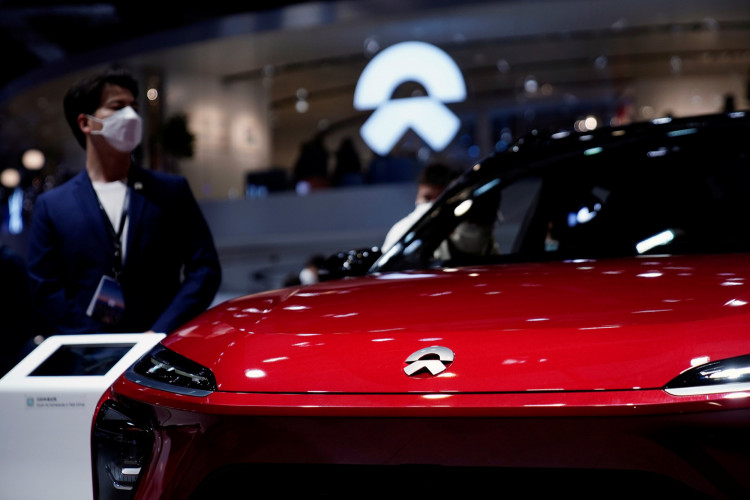China electric carmaker Nio reported narrower losses for its first quarter this year. The company beat Wall Street revenue estimates for the period while also reporting a significant increase in vehicle deliveries.
For its quarter ended March, Nio posted a net loss of $68.8 million. This was an improvement from the $260 million loss it reported a year earlier and the $210 million loss it reported in the last quarter of 2020.
Nio said it delivered 20,060 vehicles over the first quarter. This was a 423% increase compared with its deliveries over the same period last year - when China was forced to impose a lockdown when the first outbreak of the coronavirus hit. The company said it expects to deliver between 21,000 and 22,000 vehicles for its current quarter.
Like other automakers, Nio warned that a semiconductor shortage could reduce its deliveries throughout the rest of the year. Nio said it had to suspend vehicle production for five days last month due to a lack of supply.
"The overall demand for our products continues to be quite strong, but the supply chain is still facing significant challenges due to the semiconductor shortage," Nio's chief executive officer William Li said.
Analysts at S&P Global Ratings said most of the main players in the automotive sector have announced possible product cuts and lost revenue related to the lack of chips. However, analysts said the shortage may slow down production but it is unlikely to derail the industry's eventual recovery.
Nio's stock price in New York dropped by 1% before it released its earnings report Thursday. The stock closed the day 5.3% down to $38.99. Since the start of the year, Nio's stock has declined by more than 20%.
Nio remains confident it can gain a foothold in China's rapidly growing EV market, which is currently already the world's largest. Nio previously announced plans of opening a second factory in the Xinqiao Industrial Park in Hefei. The company said it has already kicked off the planning and building of a new factory, which it says should ensure sufficient production capacity for its future products.






